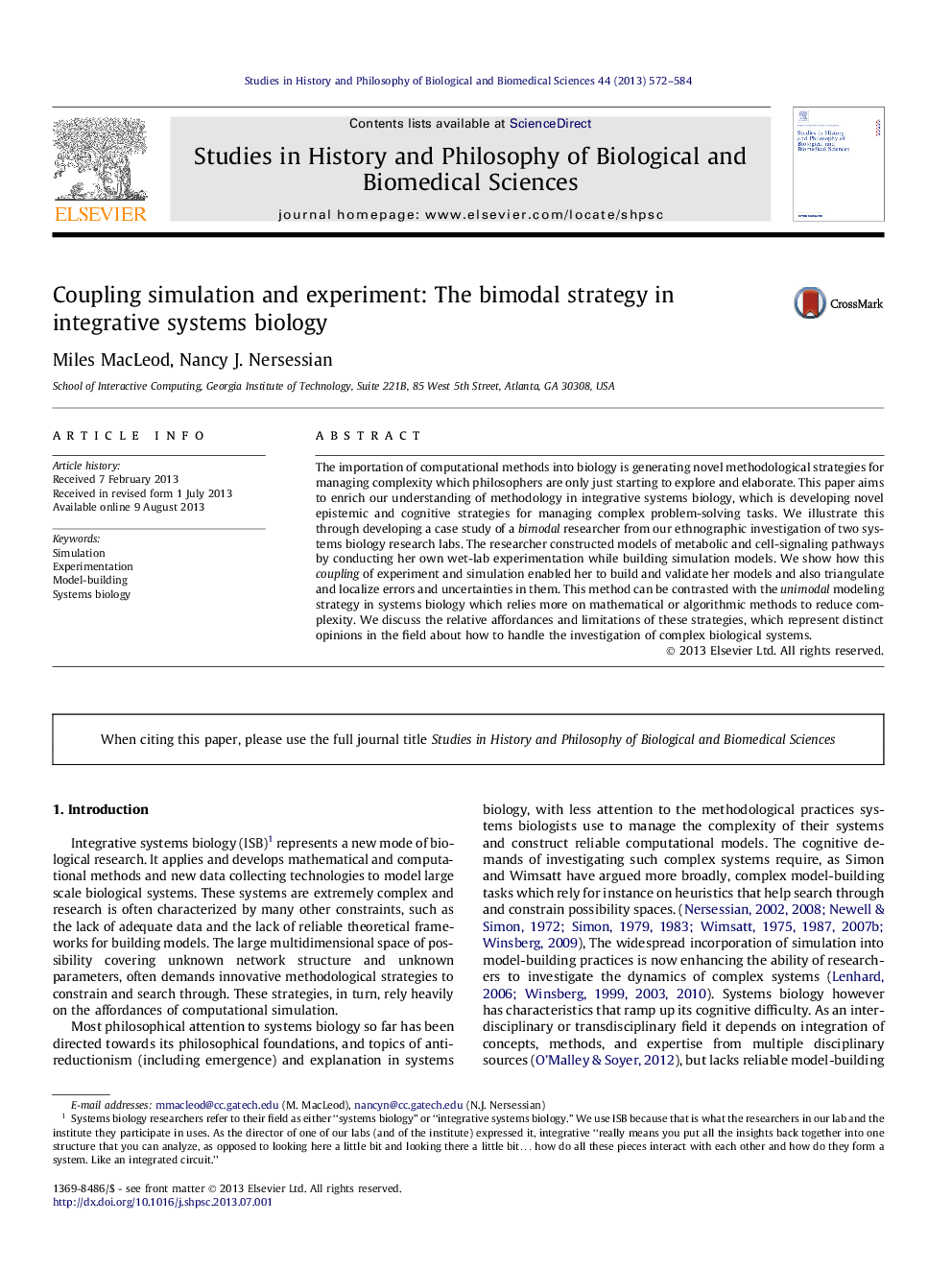| Article ID | Journal | Published Year | Pages | File Type |
|---|---|---|---|---|
| 1161231 | Studies in History and Philosophy of Science Part C: Studies in History and Philosophy of Biological and Biomedical Sciences | 2013 | 13 Pages |
•We explore the flexibility of model-building practices in integrative systems biology.•We document the coupling of experimentation and simulation in a case study.•We show the affordances of coupling for handling complex problem-solving tasks.•We provide a comparison with unimodal (pure modeling) approaches.
The importation of computational methods into biology is generating novel methodological strategies for managing complexity which philosophers are only just starting to explore and elaborate. This paper aims to enrich our understanding of methodology in integrative systems biology, which is developing novel epistemic and cognitive strategies for managing complex problem-solving tasks. We illustrate this through developing a case study of a bimodal researcher from our ethnographic investigation of two systems biology research labs. The researcher constructed models of metabolic and cell-signaling pathways by conducting her own wet-lab experimentation while building simulation models. We show how this coupling of experiment and simulation enabled her to build and validate her models and also triangulate and localize errors and uncertainties in them. This method can be contrasted with the unimodal modeling strategy in systems biology which relies more on mathematical or algorithmic methods to reduce complexity. We discuss the relative affordances and limitations of these strategies, which represent distinct opinions in the field about how to handle the investigation of complex biological systems.
